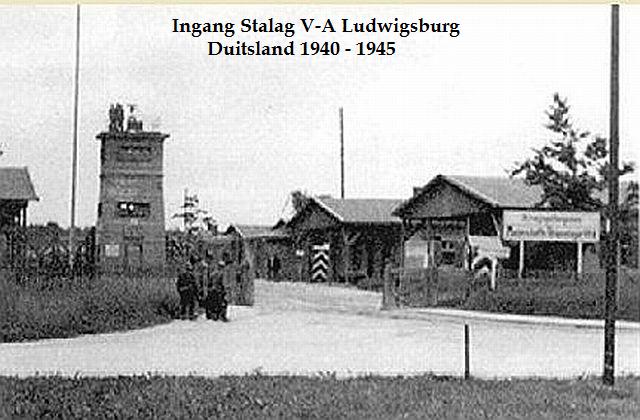Bien qu’ayant un travail intéressant chez Ziegler, mon père aurait aimé revenir au « camp », c'est-à-dire à Ludwigsburg, où il comptait nombre de ses camarades et où les distractions existaient, alors qu’en kommando il n’y avait rien à faire les jours de repos. Un mal de ventre persistant, que le docteur diagnostiqua comme « une légère appendicite » et le fait que les prisonniers Russes avaient été évacués, donc le camp avait été désinfecté empêchant tout risque de typhus, fut l’occasion pour mon père de revenir à son point de départ. Le médecin lui avait dit qu’en cas de persistance de son mal de ventre il le ferait rapatrier à l’infirmerie du camp de Ludwigsburg. En bon Français mon père joua là-dessus et fut rapatrié d’urgence à Ludwigsburg, où un chirurgien l’ausculta tout de suite et ne décela aucune appendicite. Il passa une semaine à se reposer à l’infirmerie avant d’intégrer le camp dans la baraque des « passagers ». Après une semaine de repos de plus, il alla voir l’officier du camp afin d’être réintégré dans celui-ci. Son but était atteint, revenir dans ce camp où se côtoyaient différentes nationalités de prisonniers et où certains de ses camarades y travaillaient depuis leur capture en 1940. C’est d’ailleurs un de ses camarades, secrétaire au bureau du commandant, qui lui trouva un travail, quelques temps plus tard, au centre de tri des colis.
Although he had an interesting job at Ziegler's,
my father would have liked to return to the "camp", i.e. Ludwigsburg,
where he had many of his comrades and where distractions existed, while in
kommando there was nothing to do on days of rest. A persistent stomach ache,
which the doctor diagnosed as "a mild appendicitis" and the fact that
the Russian prisoners had been evacuated, so the camp had been disinfected to
prevent any risk of typhus, was an opportunity for my father to return to his
starting point. The doctor told him that if his stomachache persisted he would
have him repatriated to the infirmary of the Ludwigsburg camp. In good French
my father played on this and was rushed back to Ludwigsburg, where a surgeon
checked him immediately and found no appendicitis. He spent a week resting in
the infirmary before integrating the camp into the "passenger"
barracks. After another week of rest, he went to see the camp officer to be
reintegrated into the camp. His goal was achieved, to return to this camp where
different nationalities of prisoners were living side by side and where some of
his comrades had been working there since their capture in 1940. It was one of
his comrade, a secretary in the commander's office, who found him a job some
time later at the parcel sorting centre.




